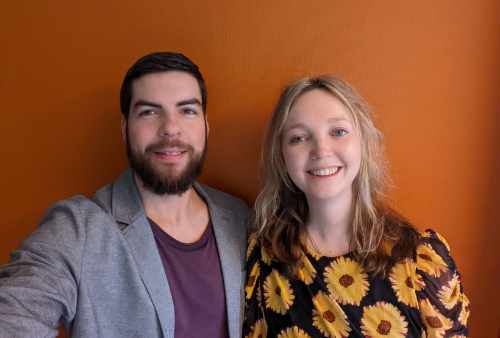Have you ever gazed up at the stars and felt a deep sense of awe and wonder? Or walked through nature and been struck by the sacredness of all living things? For millennia, humans have sought out mystical experiences that connect us to something greater than ourselves and imbue our lives with meaning.
In recent years, research has explored how psychedelics like psilocybin can occasion these deeply meaningful spiritual insights. One influential 2006 study found that under supportive conditions, psilocybin could produce mystical experiences, leading to substantial personal meaning and positive changes for participants.
In this blog, we’ll break down the key findings from this research and compare the study conditions to what you might encounter in a guided psychedelic session today. We’ll also offer some advice for psychedelic first-timers seeking spiritual insight as you plan your journey. There are always risks, but with proper preparation, setting, and integration, psychedelics can be an enlightening path to revelation. Let’s explore!
Summary of Key Research Findings
This study, published in 2006, recruited 36 medically and psychiatrically healthy adults who regularly engaged in religious or spiritual activities. The participants had postgraduate degrees but no prior experience with hallucinogens.
Researchers administered either psilocybin or a placebo control drug in two or three 8-hour sessions, with two months between sessions. They used randomized assignment and relatively high doses of psilocybin (30mg per 70kg person; coaches use 15-25mg).
The key findings were:
- 22 of 36 psilocybin participants (61%) had a “complete” mystical experience, compared to 4 of 36 on the placebo.
- Participants rated their psilocybin experiences as having substantial personal meaning and spiritual significance.
- People reported positive changes in attitudes, mood, social effects, and behaviour that persisted for months after the psilocybin session.
- Some participants experienced anxiety or fear during their session, but researchers were able to provide support to mitigate adverse psychological effects.
This pioneering study suggested that under carefully controlled conditions, psilocybin can occasion deeply meaningful mystical states similar to those that occur naturally but far more reliably. The participants themselves valued these experiences highly, even months afterwards.

Comparing Research and Coaching Settings
While this study took place in a controlled clinical setting, today, you can get similar preparation and support for psychedelic experiences through private coaching. How does the research environment compare to what you’ll encounter in a guided session with an integration coach?
Preparation and Setting
In the study, there was a meticulous emphasis on thorough screening, multiple preparation meetings, and crafting a controlled environment to reduce the chances of adverse reactions significantly. This level of preparation is notably more intensive than what is typically seen in coaching. While coaches undergo specialized training to offer emotional support and provide reassuring guidance during psychedelic sessions, the time and effort invested in preparation for a study are considerably more.
On average, the preparation for such a study can span 4-5 hours, if not more. In contrast, coaching sessions, even those that are well-structured, usually involve a preparation time of 1-3 hours. This difference underscores the depth and rigour with which studies approach the subject, ensuring participants’ utmost safety and efficacy.
Another distinguishing factor is that the research participants were individuals who had never experienced psychedelics, termed “psychedelic naive.” However, an experienced guide, whether in a study or coaching setting, is adept at accommodating both those who are venturing into the psychedelic realm for the first time and those who have had prior experiences. This flexibility and adaptability of experienced guides further highlight the importance of preparation and setting in both contexts.
Session Support
During the research sessions, participants were not only closely monitored but were also consistently supported by not one but two guides. This dual-guide approach in research settings ensures an added layer of safety, supervision, and reassurance. The presence of two guides means that there’s always someone available to attend to a participant’s needs, whether for emotional support or to address any concerns that might arise during the session.
In contrast, coaching sessions often adopt a different format. They can be one-on-one, where the participant interacts directly with a single coach, or they can be in a group setting. In group sessions, it’s common to have fewer guides than participants. This doesn’t diminish the quality of care but does highlight a difference in approach and setting between research and coaching.
Furthermore, while research settings are meticulously controlled, coaching sessions offer more flexibility regarding the environment. Coaching can occur in specially designed spaces, prioritising comfort, aesthetics, and tranquillity. Some coaches even opt for natural settings, allowing participants to connect with the environment, be it a serene forest, a peaceful beach, or a quiet meadow. These settings, whether man-made or natural, are crafted to enhance the overall experience, making participants feel even more at ease, safe, and immersed in their journey.
Regardless of the setting or the number of guides, qualified coaches, much like their counterparts in research, serve as compassionate, sober guides. Their primary role is ensuring participants feel safe, grounded, and genuinely cared for throughout their psychedelic journey.
Integration Over Time
In psychedelic research studies, the post-session support offered to participants is often limited. This is intentional, as the primary objective of these studies is to gather data on the immediate effects and outcomes of the psychedelic experience. The emphasis is on understanding the direct impact of the substance, rather than the long-term integration of the experience into one’s life. As a result, once the study concludes, participants might find themselves without the necessary resources or guidance to fully process and integrate their experiences.
On the other hand, the world of psychedelic coaching operates with a different philosophy. Coaches in this space understand that the psychedelic journey doesn’t end when the effects of the substance wear off. The insights and revelations gained during the experience often require time, reflection, and guidance to be fully understood and integrated into one’s daily life. Recognizing this, many coaches offer extended support sessions, allowing individuals to revisit their experiences, discuss their feelings, and explore ways to apply their newfound knowledge in practical and meaningful ways.
However, it’s crucial to note that the level of post-session support can vary widely within the coaching and retreat community. While some coaches or retreat centres might prioritize long-term integration, offering resources, workshops, and multiple follow-up sessions, others might have a more limited scope. Some retreats, primarily those catering to larger groups or those of shorter duration, might provide only brief integration discussions or, in some cases, none at all.
Dosage
In the study, researchers administered a notably high dose of psilocybin, 30mg per 70kg person. This significant dosage is intended to produce profound effects, often used in controlled environments to study the full spectrum of the substance’s impact. In contrast, coaches typically advocate for a more cautious approach when it comes to coaching and guided sessions outside of strict research parameters. Coaches often suggest that individuals start with a milder to moderate (still ‘full’) dose. This recommendation stems from the belief that by beginning with a less intense experience, individuals can gradually become acquainted with the psychedelic effects, its nuances, and the overall process, ensuring a smoother and potentially more beneficial journey.

Advice for First-Timers
If you’re considering a psychedelic experience for growth and self-development, how can you get the most out of it? Here are some tips as you plan your first guided session:
- Set your intention – Have an intention like “gaining clarity on my life’s direction”, but avoid rigid expectations. Stay open to whatever arises.
- Prepare mindfully – Reflect on your values, read spiritual texts, spend time in nature to come to the experience with an awake and receptive mindset.
- Arrange support – Have an experienced guide present during the session itself. And find an integration coach to meet with before and after to help process insights.
- Integrate insights – Journal about your journey, create art, discuss it with trusted friends, or find other ways to weave your insights into everyday life.
The psychedelic experience is just one phase of the process. Proper preparation and integration practices help catalyze lasting growth.
This research suggests psychedelics like psilocybin can reliably produce mystical experiences, given a supportive set and setting. Participants experienced these mystical states as personally meaningful, spiritually significant, and leading to lasting benefits months later.
While psychedelics always carry risks, researchers found even first-timers could experience spiritual insights with proper preparation and emotional support during the session. Integration afterwards is key to applying psychedelic lessons to daily living.


